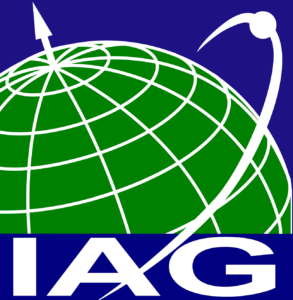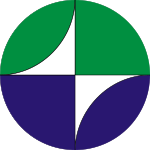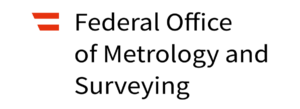Terms of Reference
President: Valérie Ballu (France)
Vice President: Heidrun Kopp (Germany)
ICCM website – iccm.iag-aig.org
Terms of Reference
The Inter-Commission Committee on Marine Geodesy (ICCM) was first proposed by the Chinese National Committee to the IAG Executive Committee (EC) in Kobe, Japan, in 2017 and then passed at the 6th and 7th meetings of the IAG EC in 2018. The ICCM was formally approved and established following the IUGG General Assembly in Montreal, Canada, in 2019. With over seventy percent of the planet’s surface and the most important zones of crustal formation and destruction covered by the oceans, monitoring and understanding the oceans and the seafloor is of highest relevance to secure the human sustainable development. The oceans provide enormous biological and mineral resources while at the same time modulate the climate and weather patterns and serve as an important sink for atmospheric carbon. The oceans and seafloor are crucial to the evolution not only of life, but of the Earth system, yet 80% of marine realm remain unexplored [NOAA]. The research foci of marine geodesy have enormous economic and scientific potential. However, at present, large gaps in ocean surveys, seafloor mapping and remote sensing exist, which necessitate IAG’s immediate attention. Research contributions to marine geodesy have advanced tremendously during the last two decades:
1. seafloor geodetic networks have been initiated and established by countries orregions including North and Central America, Europe, New Zealand and Japan,and in the near future more coastal countries may start seafloor observatory plans;
2. advanced GNSS/acoustic GPS-A techniques have achieved centimeter accuracyin seafloor geodetic positioning, crucial to marine geohazard monitoring, includ-ing undersea earthquakes volcanic eruptions, and submarine landslides as well asmonitoring of seafloor infrastructure;
3. multi-ocean environment monitoring data are available to potentially improveseafloor geodetic positioning or monitoring of steric sea level and circulations,including temperature and salinity profiles of the Array for Real-time Geostrophic Oceanography (Argo), expendable bathythermograph (XBT) data, ocean-bottompressure (OBP) data and surface and subsurface ocean current observations.
ICCM strongly encourages research to:
1. enhance frontier research topics on monitoring changes of the ocean and seafloor, such as sea level change, seafloor tectonic motion and seismological events, steric and mass oceanic variations, changes of the surface and subsurface currents, andchanges of waves and wind patterns;
2. refine a series of marine geodetic models, including barotropic and baroclinic oceantide models, marine geoid models, dynamic topography models, and coastal reference models such as the mean high water (MHW) and the high-water line(HWL);
3. improve the accuracy and resolution of the global seafloor topography particularly in the coastal regions by advancing new seafloor geodetic data acquisitions,innovative data processing, and exploring new topography inversion tools;
4. promote the development of seafloor geodesy networks and regional densification,together with reflexions toward the geodetic tying of seafloor reference points intothe International Terrestrial Reference Frame (ITRF) in the coastal and deep ocean.
Objectives
The overall objectives of the ICCM are:
- to shorten the gaps between theory and applications in marine geodesy, andto encourage transdisciplinary integration of the contemporary geodetic sensors,including marine geophysical sensors, oceanic sonar and physical oceanographyinstrumentation;
- to improve the global realization of the ITRF by connecting the seafloor geodeticnetwork component with it, and to improve current marine geodetic models byincluding the space, surface and subsurface geodetic observations;
- to encourage the development of marine geodetic methodology, especially for thefusion methods of multi-marine geodetic observations;
- to promote international collaborations in regional marine geodetic surveys, and todevelop and establish international conventions for marine geodetic data processing,the seafloor reference frame, and other standards.
ICCM will interact and collaborate with the IAG Commissions, GGOS, and otherIAG entities (Services, Projects) to achieve these aims. Stronger interactions withthe International Association for the Physical Sciences of the Oceans (IAPSO), theoceanography component of the IUGG is also encouraged.
Program of Activities
The anticipated ICCM activities include:
- service as (co-)conveners of geodesy sessions at major conferences such as IAG,EGU, AGU, AOGS, IUGG, etc.
- organization of marine geodesy symposia, and publication of special issues of international journals such as Marine Geodesy, Journal of Geodesy, and Advanced SpaceResearch.
- creation and maintenance of a website for disseminating ICCM-related informationand data products.



